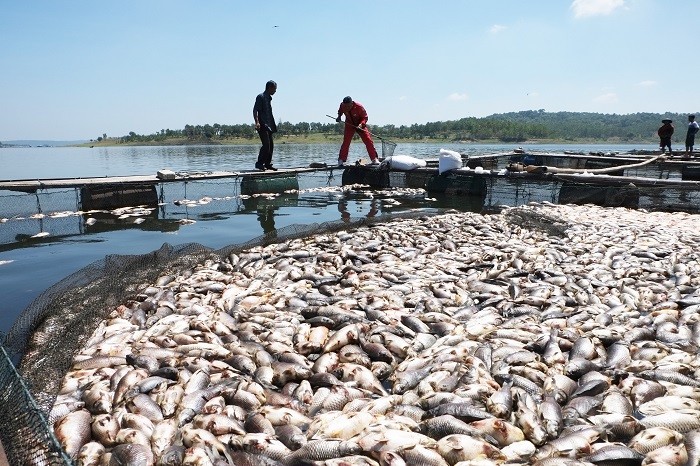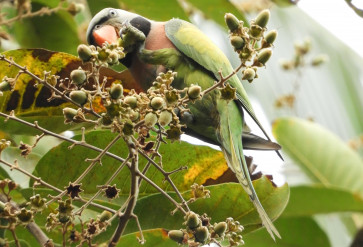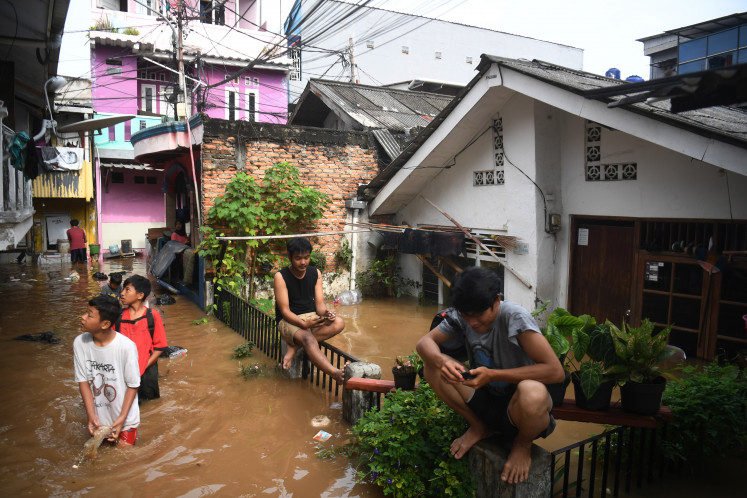Popular Reads
Top Results
Can't find what you're looking for?
View all search resultsPopular Reads
Top Results
Can't find what you're looking for?
View all search results100 tons of fish killed in in C. Java fish farms
Change text size
Gift Premium Articles
to Anyone
 Bad season: Fish farmers remove dead fish from 'karamba' (bamboo cages) at Kedung Ombo Dam, Boyolali, Central Java, on Sunday. Over 100 tons of red and gold Nile tilapia fish died over the past week reportedly as a result of ammonia pollution. (JP/Ganug Nugroho Adi)
Bad season: Fish farmers remove dead fish from 'karamba' (bamboo cages) at Kedung Ombo Dam, Boyolali, Central Java, on Sunday. Over 100 tons of red and gold Nile tilapia fish died over the past week reportedly as a result of ammonia pollution. (JP/Ganug Nugroho Adi)
O
ver 100 tons of red and gold Nile tilapia fish being farmed in karamba (bamboo cages) in Kedung Ombo Dam, Boyolali, Central Java, have died over the past week, reportedly as a result of ammonia pollution, with a financial loss totaling Rp 2 billion (US$138,160).
“Over 100 tons of fish from hatchlings to adult fish have been killed,” fish farmer Budi Siswanto said on Sunday, noting that the fish were worth Rp 20,000 per kilogram.
The fish began to die on Wednesday, Budi said, adding that he suspected that the long drought had caused the ammonia, which was piled up from the residue of fish pellets at the bottom of the dam, to surface and pollute the water.
Wonoharjo village head Gunadi said that the farmers faced devastating losses.
“Most of the fish were ready for harvest,” he said.
Boyolali Livestock and Fishery Agency production division head Deviet Nurmaryani said the fish died as a result of “upwelling”, a vertical motion of water caused by temperature changes between the surface and the bottom of the water. The signs of upwelling are weather change, water clarity and a significant reduction in water temperature.
“Farmers must be aware of fish behavior, natural phenomena and water quality. If there are many wild fish swimming to the surface, that’s a sign that upwelling is occurring,” Diviet said.
According to Kardiyo, a fish farmer, the farmers had tried to oxygenate the water but still failed to save the fish. (stu/swd)









